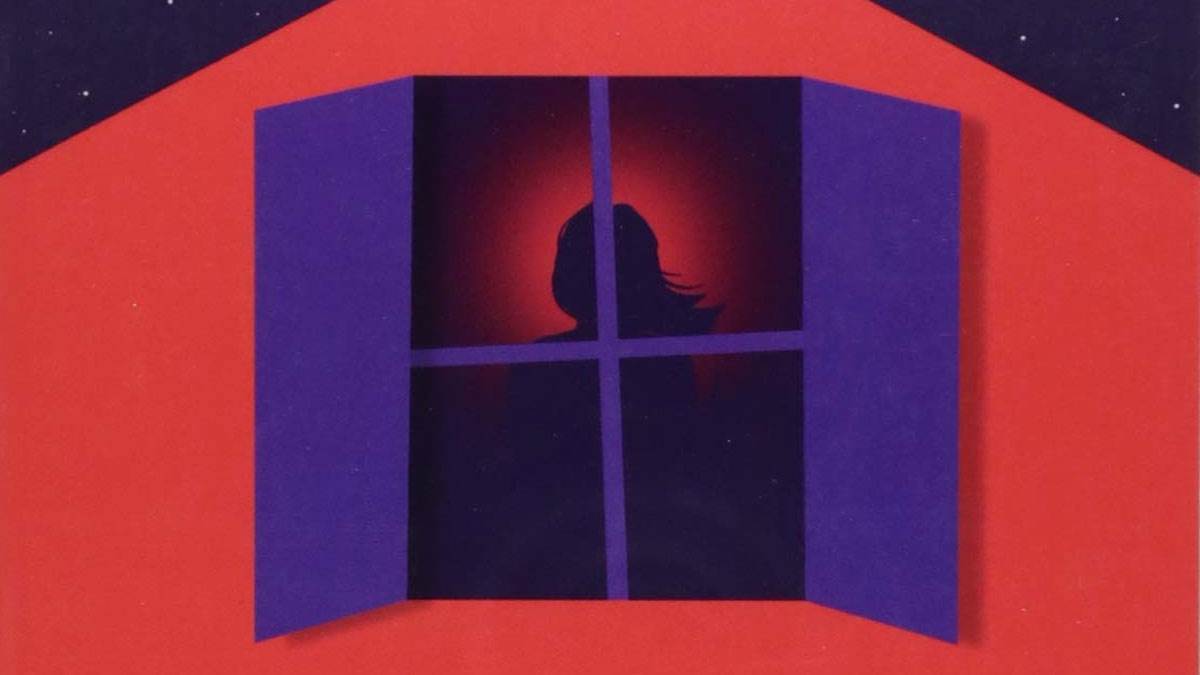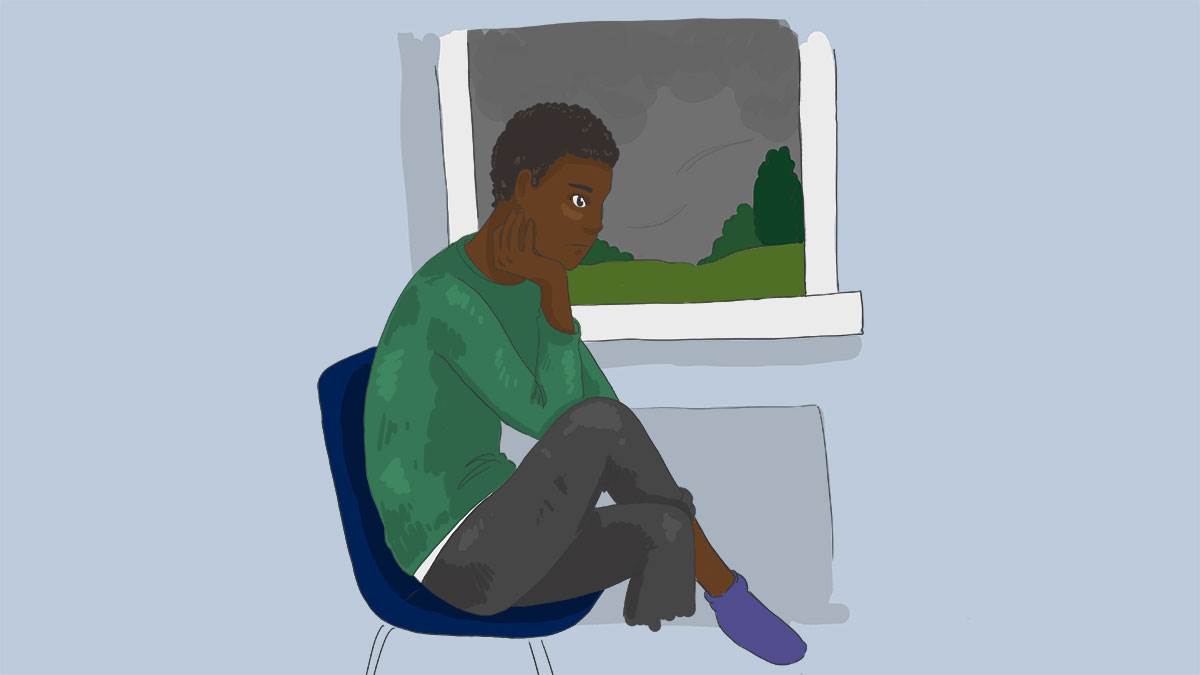Girl In The Window: What it's like to have ME or Chronic Fatigue when you're young
Published on: 5 Mai 2019 Author: Penny Joelson
Author Penny Joelson knows what it's like to have Myalgic Encephalomyelitis (ME): to feel exhausted and in constant pain, trying to explain the condition to others. It's why she wanted to write a book for teens and young adults with a character going through exactly the same thing...

Illustration from the front cover of the book Girl in the Window by Penny Joelson
I am sometimes approached by people who know I had ME (Myalgic Encephalomyelitis, also known as Chronic Fatigue Syndrome), and who are desperately seeking help for a relative. Do I have any advice?
I tell my story but I also feel a degree of "survivor guilt", especially as my response to recovery after ten years of living a very restricted, painful life, was to turn my back on my illness, push it as far down a deep hole as I could, forget about it and all my fellow sufferers – and move on.
I returned the wheelchair to the Red Cross loan service, travelled, moved out of the supported flat for disabled people where I was living, got married, had two children – things I had never imagined I would ever do.
Unable to speak or swallow
Four years ago, Odette, a fellow author/ student/ friend told me about her granddaughter Cherry – a teenage girl, too ill with ME to leave the house; her education, social life and every aspect of her existence completely on hold.
I felt for her. I was 25 and working as a teacher when I became ill with a flu-like virus from which I didn’t recover. I was left with constant muscle pain, swollen glands and exhaustion after minimal activity. I had at least finished my education, and begun my professional teaching career, however briefly.
To have ME so young, at the point where you are transforming from child to adult, where freedom and opportunities are opening up, must be even more devastating. Moreover, so much is time-related as a teenager. You take GCSEs at 16, A levels at 18. As an adult, it doesn’t matter so much when you do things, but these exams have clear age expectations.
 Illustration by Emily Rowland
Illustration by Emily Rowland
Cherry stayed in my mind but it was only last year, when I was trying to think of an idea for a book to follow my award-winning YA novel, I Have No Secrets, that I considered writing about a girl with ME.
I still had doubts. I was reluctant to remind myself of how awful it was – and felt almost superstitious as if thinking about it might bring it back. I thought about Cherry and I pushed these fears away.
I knew about ME but not the teenage experience. I hoped that Cherry, then 19, might be able to help me with research. Odette shook her head. Cherry was worse – unable to get out of bed, tolerate light or sound, speak more than a word or two, or even tolerate voices speaking to her. More recently, she became unable to swallow and is now tube-fed.
And the treatment? No one knows why ME happens – though it often starts after a virus - and no one really knows how to treat it.
All in the body, not mind
Long dismissed as "all in the mind" or "yuppie flu", this horrendous illness affecting millions worldwide, 250,000 in the UK alone, has had less financial investment in research than male baldness.
I was shocked to find that nothing has moved forward in the 14 years since my health improved. The only change is the revelation that research that appeared to prove psychological treatments – graded exercise therapy (GET) and Cognitive Behavioural Therapy (CBT) – were the way forward was deeply flawed, and there is evidence that these treatments made many people worse rather than better.
I’d been ill for nine years when I suffered a relapse that meant I was only able to walk for one or two minutes instead of the ten that was the most I had managed previously. In the end, it was mainly pacing that helped me, but I was lucky to have expert professional help from someone I found privately, who had many years’ experience of helping people with ME.
I do not believe ME is all in the mind. I believe it is a physical condition with a physical cause. The body appears to continue to behave as if it is fighting a virus when the virus is no longer there. Something has gone wrong and ideally medical intervention will be found that can help. The body’s batteries are nearly flat.
The slightest exertion causes PEM (Post-Exertion Malaise) and it is often a delayed reaction. With a strict and careful approach to pacing, my batteries gradually recharged. But I know this doesn’t work for everyone. Far more research is needed.
Better but not recovered
When I began to plan Girl in the Window and had decided on a character with ME, I put out a call online through ME charities for young people to help me with research for the book.
I had a big response. The stories that came back were sad, traumatic to read and made me very emotional. People with ME have been basically abandoned.
I also realised that although I say I have recovered, I haven’t really. I probably recovered about 60 to 70 per cent. I live a full life and I value every moment but I have limitations. I don’t have anywhere near the energy of the average person my age. I can’t work full time. If I do too much, the leg pain and swollen glands and exhaustion return. I still have to be careful. I am better – but not recovered.
This year, with the release of Jennifer Brea’s amazing film, Unrest, ME, has been more in the public eye. The NICE (National Institute for Health and Care Excellence) guidelines are currently being challenged and more investment is finally going into research.
In the meantime, I hope – as well as being an intriguing mystery story – Kasia’s story in Girl in the Window will raise awareness of young people who are housebound with ME and increase understanding of the experience of this very real and debilitating illness.
Cherry has made slight improvements, which I hope so much will continue. I was touched to hear that she was recently well enough to be told that I had dedicated Girl in the Window to her.
Topics: Bookmark, Disability, Illness, Features






Add a comment